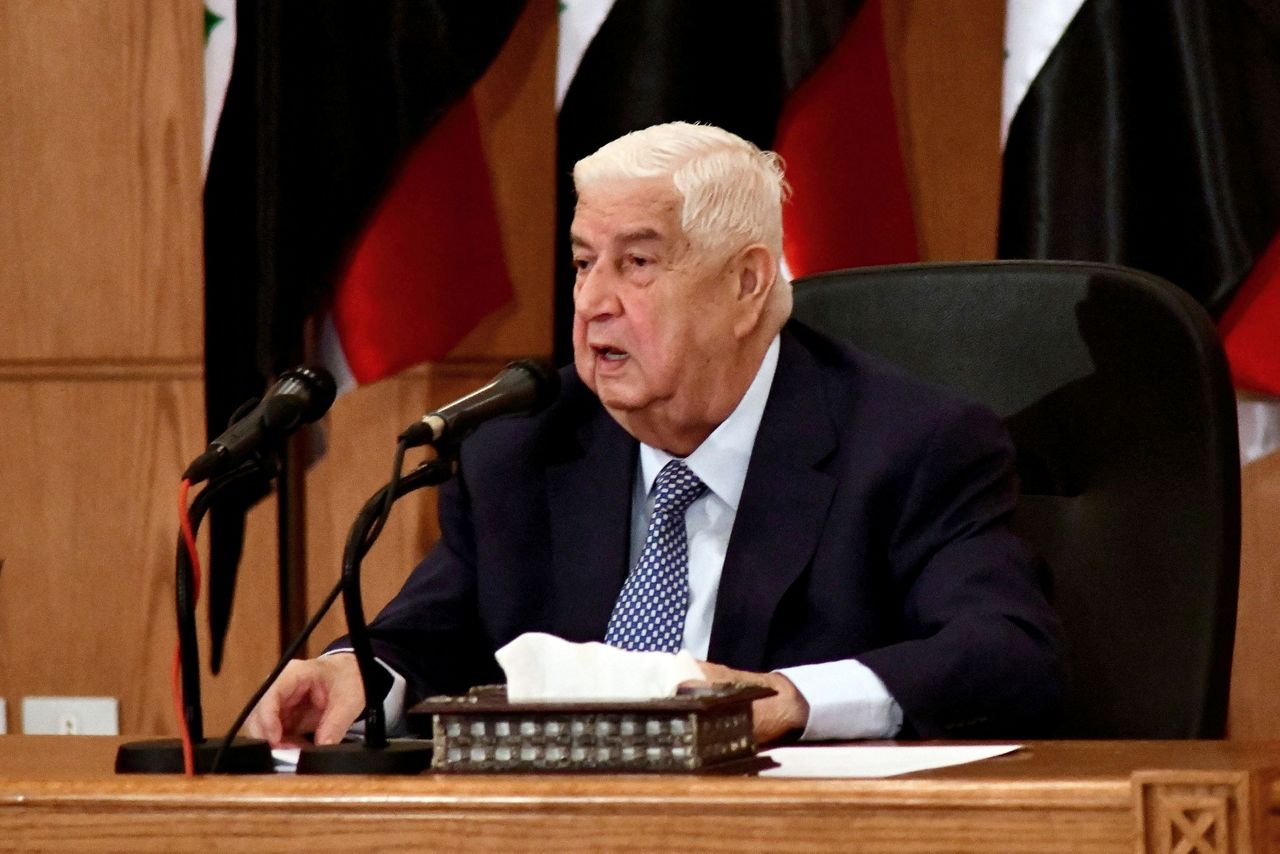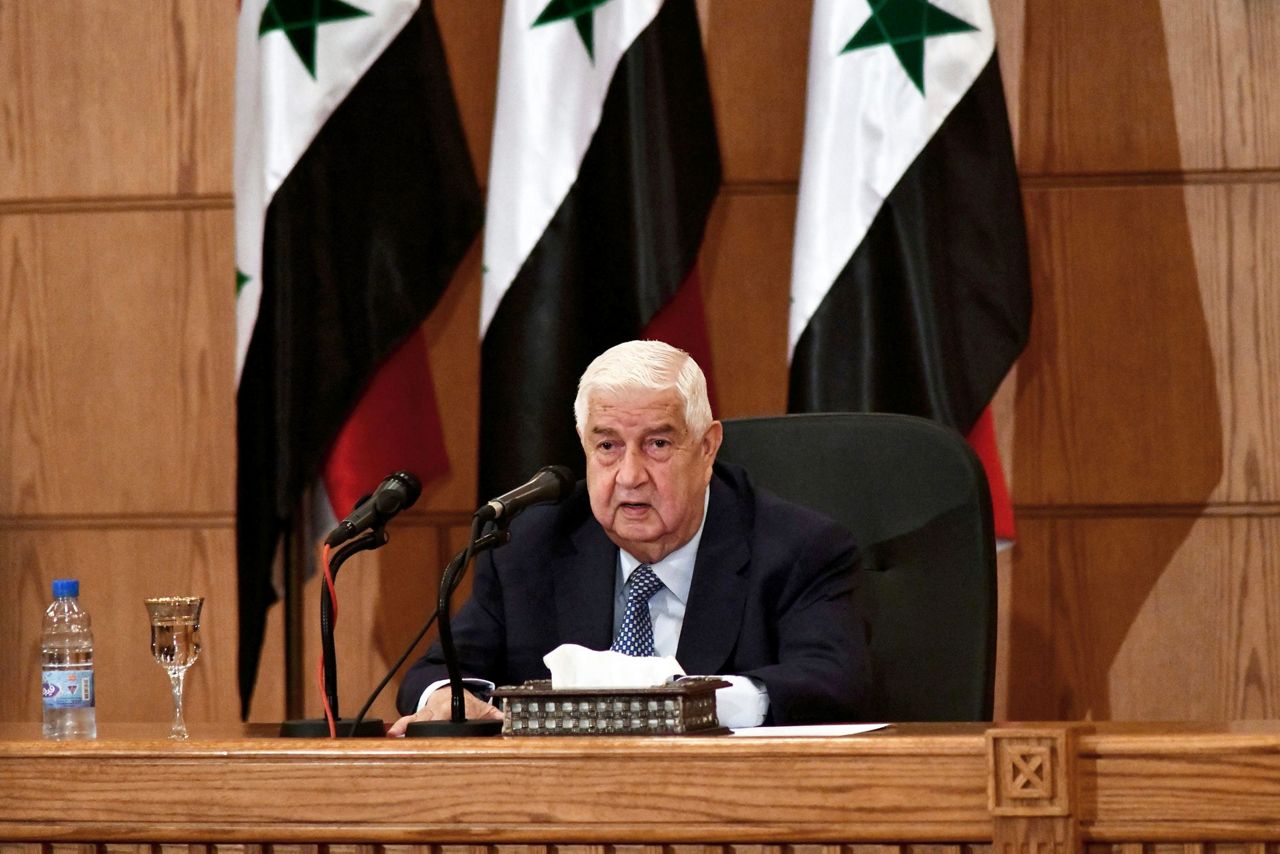DAMASCUS, Syria (AP) — Syria’s foreign minister accused the United States on Tuesday of allegedly “seeking to starve the people” of Syria by imposing new sanctions and opening the door for “terrorism" to return to the war-torn country.
Walid al-Moallem said the sanctions are a challenge but not impossible to overcome, and insisted that the government will be able to cope with the so-called Caesar Syria Civilian Protection Act — with assistance from friends and allies.
Syrian President Bashar Assad's government refers to armed opposition fighting it as “terrorism.” The legislation known as the Caesar Act was named after the pseudonym of a Syrian policeman who turned over photographs of thousands of victims of torture by the Assad government.
“The challenges are not easy," al-Moallem said. “We have already started taking measures to counter these sanctions."
Later Tuesday, the Syrian defense ministry said two soldiers were killed and four were injured following coordinated aerial attacks on military bases in the country's Sweida and Deir el-Zour provinces, in south and southeastern Syria respectively. The defense ministry statement didn't identify who was behind the attacks, but said the aircraft flew over eastern Syria. It added the country's air defense were activated.
Israel has been suspected of carrying out a series of attacks in Syria in recent weeks, believed to have targeted Iranian and proxy interests in the country. There is rarely any comment from Israel on such attacks.
The latest U.S. sanctions are the most severe yet against Syria, set to target any individual or entity doing business with the Syrian government or supporting its military efforts, including reconstruction, fuel delivery and other sectors. Businessmen close to the Syrian government were added to the sanctions list under the new measures.
The U.S. State Department and Treasury also added the names of Assad, his wife and relatives to the sanctions list, tightening the noose around the inner circle of the ruling family. More names are expected to be announced this summer.
“What we need to do is turn this into an opportunity to develop our national economy, increase self-reliance and deepen the cooperation with friends and allies,” al-Moallem said and added that authorities are “not worried about the Caesar Act despite all the psychological warfare.”
The act, which gained bipartisan support in Congress in December, went into effect this month.
Al-Moallem also said that the sanctions aim to influence the Syrian presidential elections, expected next year, to change Syria's policy and force it to give up its current alliances with “the resistance” —a reference to Assad's allies Iran, the militant Lebanon’s Hezbollah group and Palestinian factions.
He said that Assad would remain in power as long as the Syrian people want him to stay.
Al-Moallem dismissed the measures as an “act of the despairing" after the Syrian government forces' success on the battlefield.
“The real goal of the so-called Caesar Act is to open the door for the return of terrorism as it was in 2011,” he added.
Copyright 2020 The Associated Press. All rights reserved. This material may not be published, broadcast, rewritten or redistributed without permission.




